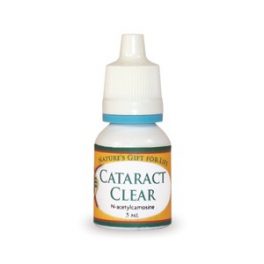Eye Health
DOCTORS RECOMMENDED PRODUCTS
-
Eye Health
Cataract Clear (Eye Heath)
0 out of 5(0)
Benefits of this product for Eye Health- Prevent and reverse senile cataracts and help prevent other eye aging disorders
- Efficient for treating a variety of ophthalmic conditions, including corneal diseases, presbyopia, blurred vision, dry eye syndrome, complications
>>>Read More
SKU: n/a81,900CFA
Nearly everyone experiences some form of eye problem in their lives ranging from harmless eye twitches, blurriness, fatigue and itchy eyes to more serious disorders, such as cataracts. Eye troubles can be localized, or they can be symptoms of disease, either in the eye itself or somewhere else in the body. Because the eye is one of the most complicated organs of the body, there are many factors that can negatively affect it.
Most of these eye problems are short-lived and will probably go away on their own with no complications. However, sudden eye problems and those that last for more than a couple of days, should be checked by an eye doctor. Symptoms of eye and vision disturbances can vary greatly depending on the disorder and the actual cause of the symptom. The following is a list of common eye problems and their possible causes.
• Eye twitching is usually harmless, but can be very annoying. Twitching may be associated with the following: stress, caffeine, fatigue, pink eye, panic disorder
and Tourette syndrome.
• Itchy eyes can be caused by: Pink eye, blepharitis, dry eye syndrome or allergies.
• Tired eyes can be a consequence of the dry eye syndrome, computer vision syndrome, farsightedness or astigmatism.
• Seeing “floaters” can be caused by retinal detachment, diabetic retinopathy, posterior vitreous detachment or stroke.
• Blurry vision, or the inability to bring objects into sharp focus, can be caused by a number of conditions. Sometimes fatigue or illness can cause vision to be temporarily blurred. The following eye problems can also cause blurry vision: nearsightedness, farsightedness, astigmatism, cataract, macular degeneration, glaucoma, uveitis, dry eye syndrome or migraine.
• Watery eyes can be caused by the common cold.
• Bulging eyes are a sign of a thyroid condition.
• A yellow tinge in the eyes may be tied to hepatitis or gallstone problems.
• Bloodshot eyes are a sure sign of fatigue or eye strain. Some headaches are tied to eye strain.
Some eye problems are associated with age. Age-related eye problems occur as we get older and include age-related macular degeneration, presbyopia (difficulty seeing nearby objects), cataract, glaucoma and posterior vitreous detachment. Parents are usually the first to notice children’s eye problems, which include: lazy eye, strabismus, color blindness, pink eye and farsightedness. Although it is best to address each eye problem specifically, there are some general steps you can take to enhance overall eye health.
Healthy Things You Can Do
• Maintain a healthy diet and adequate nutritional intake. Your eyes rely on the nutrients you consume. Eat a diet rich in proteins, fruits, and vegetables. Especially include: broccoli, raw cabbage, carrots, cauliflower, green vegetables, squash, watercress, and sunflower seeds. It is very important that all aging people maintain adequate antioxidant supplies to protect their eyes.
• Eliminate sugar and white flour from your diet.
• Protect your eyes from overexposure to sunlight and wind. Wear a hat and sunglasses with ultraviolet (UV) protection whenever you are outdoors. The sun’s UV rays can increase the risk of developing skin cancer, cataracts, and macular degeneration.
• Drink plenty of water (to keep eyes hydrated).
• Stop smoking, avoid tobacco smoke and other airborne irritants. Smoking can increase one’s risk of developing cataracts, macular degeneration, and many other
diseases by increasing oxidative stress, narrowing blood vessels, and reducing blood flow to the eye.
• Get plenty of rest. Also, take frequent breaks when reading or working at a computer to help reduce eye fatigue.
• Get regular, comprehensive eye examinations. Many eye diseases have no symptoms until their latter stages
• Beginning at age 40, get annual comprehensive eye examinations for early detection of age-related eye conditions.


